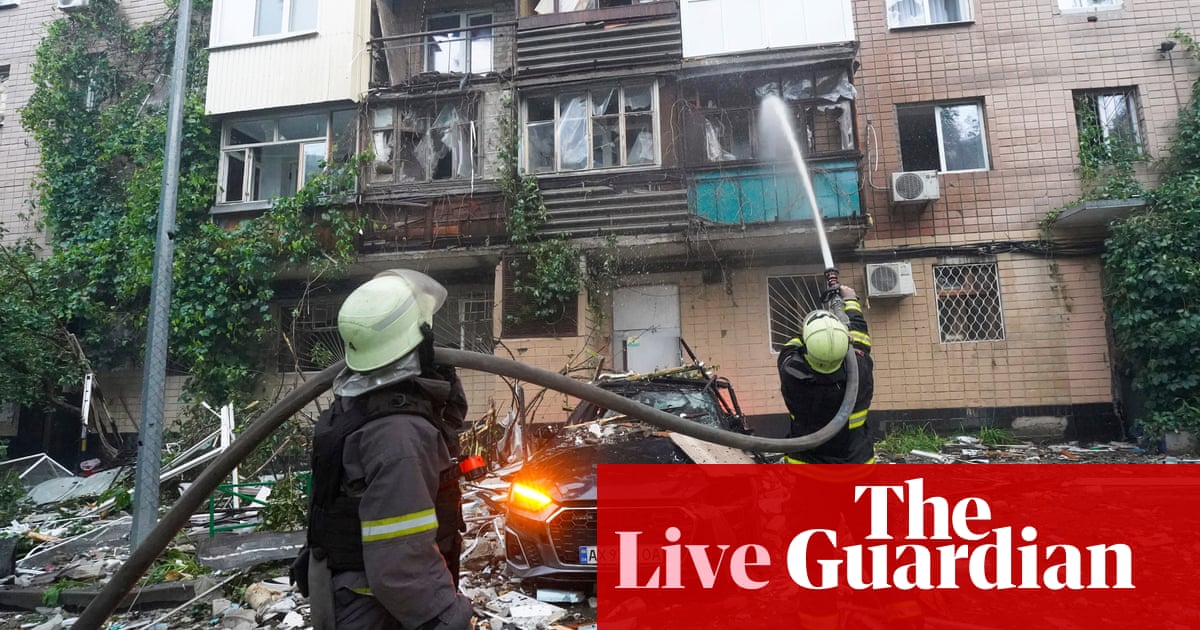The report outlines a significant escalation in the ongoing conflict between Russia and Ukraine, particularly focusing on the recent attacks in Kharkiv, Ukraine's second-largest city. The details emphasize the scale and intensity of the Russian military operations, highlighting civilian casualties and damage to infrastructure. This narrative serves multiple purposes in shaping public perception and political discourse.
Intent Behind the Publication
The intent appears to be to draw attention to the severity of the attacks, thereby reinforcing the narrative of Russian aggression. By emphasizing the impact on civilians, including the tragic injury of a baby, the article seeks to evoke empathy and outrage from the international community. This aligns with Ukraine's broader strategy to garner support and assistance from Western nations.
Public Sentiment Manipulation
The language used in the report is emotionally charged, focusing on civilian suffering and destruction. This approach is likely aimed at rallying public support for increased military aid to Ukraine and maintaining international pressure on Russia. The mention of specific casualties and the description of the attacks as the "most powerful" since the war began serves to highlight the urgency of the situation.
Potential Information Gaps
While the report focuses heavily on the immediate impact of the attacks, it may downplay broader contextual factors, such as the ongoing military strategies on both sides or the geopolitical implications of such escalations. This could lead to a one-dimensional understanding of the conflict, where the complexity of the situation is not fully explored.
Comparative Analysis with Other Reports
When compared to other reports covering similar events, this article maintains a consistent narrative regarding the humanitarian impact of the war. However, it may lack coverage of Russian perspectives or responses, which could offer a more balanced view. The tendency to focus on Ukrainian suffering is common in Western media, which often portrays Russia as the aggressor without delving into the complexities of the conflict.
Impact on Society and Economics
The consequences of this report could ripple through various sectors. Increased media focus on the violence may lead to heightened anxiety among the public, potentially influencing political decisions regarding military engagement. Economically, ongoing conflict can lead to instability in markets, particularly in sectors related to energy and defense, as global responses to the war evolve.
Support from Specific Communities
This type of reporting tends to resonate more with audiences sympathetic to Ukraine, including Western nations that have been vocal in their support against Russian aggression. The emphasis on civilian casualties aligns with humanitarian values, appealing to those advocating for peace and support for Ukraine.
Market Implications
The report could influence stock markets, particularly in defense and energy sectors. Companies involved in military supplies to Ukraine may see increased interest from investors, while energy markets could react to the instability in the region. Investors may closely monitor developments, looking for signs of escalation or de-escalation.
Geopolitical Significance
From a global power dynamics perspective, this article underscores the ongoing struggle between Western democracies and authoritarian regimes, represented by Russia. The focus on civilian impacts highlights moral and ethical arguments that may influence diplomatic relations and international policy.
Artificial Intelligence in Reporting
While it is unclear if AI was directly involved in the creation of this article, the concise presentation and the structured nature of the report suggest that AI-assisted tools may have been used for data analysis or summarization. If AI played a role, it could have shaped the narrative by emphasizing certain aspects of the conflict that align with prevailing media themes.
In conclusion, the article serves to reinforce the narrative of Russian aggression while aiming to evoke a strong emotional response from the audience. The reliability of the report is generally high, given its sourcing from official statements and eyewitness accounts, but it may lack a comprehensive view by not addressing the complexity of the conflict. The emotional appeal and focus on civilian suffering suggest a strategic effort to shape public perception and garner support for Ukraine.
